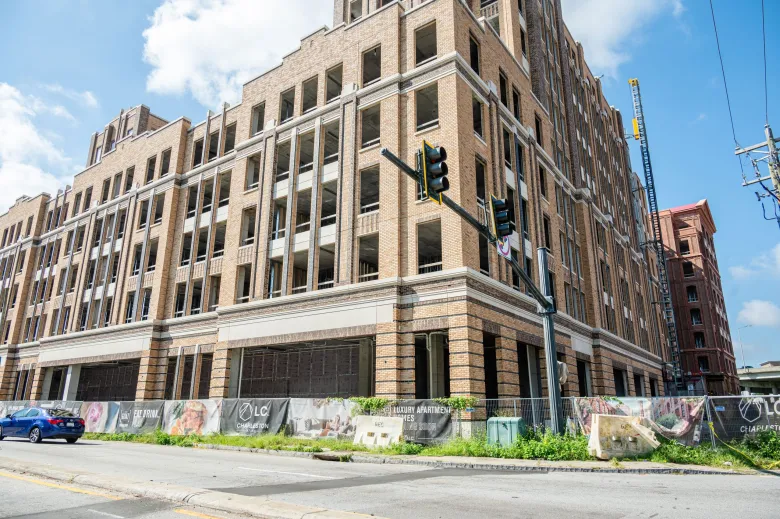
Mind-Blowing: New Apartment Supply Sparks Rent War in Charleston!
Charleston Market Report – Charleston, long known for its historic charm and rising real estate market, is suddenly in the midst of an unexpected shift—and it’s catching both renters and investors off guard. With an unprecedented wave of new apartment developments hitting the market in 2025, the city is experiencing what many are calling a rent war in Charleston, and the numbers are nothing short of stunning.
What was once a tight rental market dominated by high demand and limited options has quickly become a competitive arena where landlords are slashing prices, offering perks, and fiercely battling for tenants. The implications are profound—not just for renters, but for developers, investors, and the city’s long-term housing landscape.
Charleston has been undergoing a construction boom for the past three years, driven by population growth, out-of-state migration, and increased investor interest in the Southeast. However, due to pandemic-era delays and labor shortages, many of these developments were bottlenecked—until now.
In early 2025, a large volume of delayed projects finally received occupancy permits. The result? More than 4,000 new rental units entered the market almost simultaneously, flooding areas like North Charleston, West Ashley, and Mount Pleasant with inventory.
Developers anticipated strong demand would continue to absorb these units, but inflation, mortgage rate volatility, and wage stagnation have caused renters to hesitate or downsize, creating a rare surplus.
The sudden oversupply has triggered aggressive competition among property managers. This rent war in Charleston is especially fierce among mid-tier luxury buildings, where renters now find themselves able to negotiate previously unheard-of lease terms. Tenants with solid credit and stable income have more leverage than ever.
According to data from local analytics firms, rental rates in some areas have dropped by as much as 12% compared to the same quarter last year—an almost unheard-of decline in a market that once saw steady year-over-year increases.
In the short term, renters are clearly the winners. Young professionals, students, and relocating families are capitalizing on better locations, larger units, and more amenities for less money. For many, this is the first time Charleston has felt like a renter’s market in over a decade.
However, not everyone is cheering. Smaller landlords and mom-and-pop property managers are feeling squeezed, especially those who recently refinanced or purchased at peak pricing. Some are being forced to lower rents to stay competitive, while others face rising vacancy rates and tighter margins.
Investors, too, are rethinking short-term strategies. While the long-term fundamentals of Charleston’s market remain strong, many are holding off on new acquisitions or shifting focus toward more stable submarkets.
The rent war in Charleston is more than just a housing story—it’s a window into larger economic dynamics. A dip in rental income affects local tax revenues, particularly if assessments are adjusted based on income approach valuations.
Additionally, the influx of available apartments is drawing in remote workers and digital nomads seeking high-quality living at reduced cost. This demographic shift could benefit the local economy, as more residents dine, shop, and invest in Charleston-based businesses.
On the other hand, prolonged rent stagnation could discourage further residential development, possibly leading to a shortage once the current surplus is absorbed. It’s a delicate balance that city planners and economic analysts are watching closely.
If you’re a prospective renter in Charleston, this is your moment. Locking in a longer lease at today’s reduced rates could save you thousands over the next year. However, be sure to read lease terms carefully, especially regarding renewal clauses and amenity fees. Some landlords may recoup losses in the fine print once the market stabilizes.
Comparing multiple properties, asking about incentives, and negotiating terms is not only acceptable—it’s expected. Use this rare leverage while it lasts.
As 2025 progresses, most experts agree that the rent war in Charleston will taper off as the surplus is absorbed. By mid-to-late 2026, rental prices may begin climbing again—especially if interest rates drop and housing demand rebounds.
However, the lasting impact may be psychological. Renters are becoming more price-aware and value-driven, and landlords will need to maintain service and amenity standards to justify pricing going forward. The days of blanket rent hikes and low turnover may be behind us.
More importantly, this shift highlights the need for smarter planning around housing supply, population growth, and economic resilience in Charleston’s future development.
This mind-blowing shift in Charleston’s rental market is more than a fluke—it’s a case study in supply, demand, and economic ripple effects. While the rent war may not last forever, its lessons will shape decisions for years to come. Whether you’re a tenant, landlord, or investor, staying informed and agile is key.
Right now, Charleston is a renter’s paradise. But how long the balance holds depends on what happens next.
This website uses cookies.